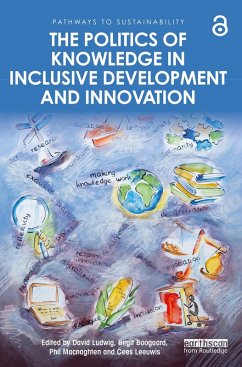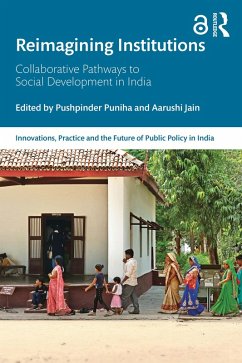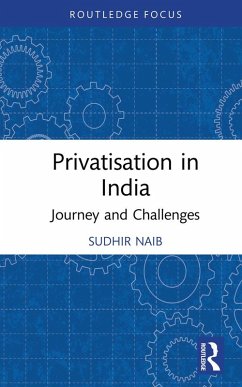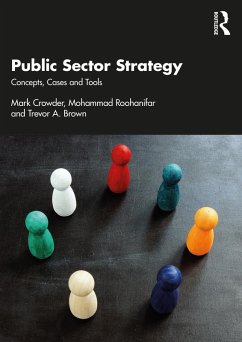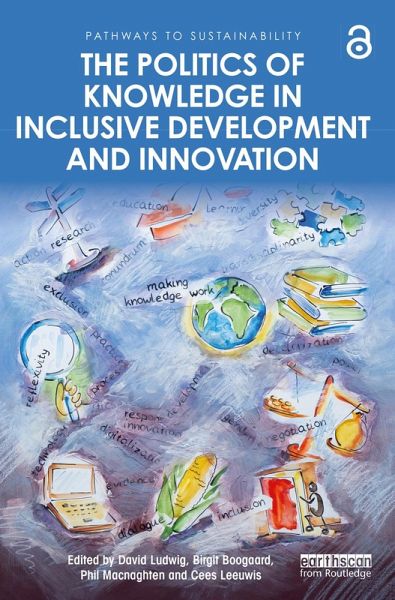
The Politics of Knowledge in Inclusive Development and Innovation (eBook, ePUB)
Versandkostenfrei!
Sofort per Download lieferbar
0,00 €
inkl. MwSt.
Weitere Ausgaben:

PAYBACK Punkte
0 °P sammeln!
This book develops an integrated perspective on the practices and politics of making knowledge work in inclusive development and innovation.While debates about development and innovation commonly appeal to the authority of academic researchers, many current approaches emphasise the plurality of actors with relevant expertise for addressing livelihood challenges. Adopting an action-oriented and reflexive approach, this volume explores the variety of ways in which knowledge works, paying particular attention to dilemmas and controversies. The six parts of the book address the complex interplay o...
This book develops an integrated perspective on the practices and politics of making knowledge work in inclusive development and innovation.
While debates about development and innovation commonly appeal to the authority of academic researchers, many current approaches emphasise the plurality of actors with relevant expertise for addressing livelihood challenges. Adopting an action-oriented and reflexive approach, this volume explores the variety of ways in which knowledge works, paying particular attention to dilemmas and controversies. The six parts of the book address the complex interplay of knowledge and politics, starting with the need for knowledge integration in the first part and decolonial perspectives on the politics of knowledge integration in the second part. The following three parts focus on the practices of inclusive development and innovation through three major themes of learning for transformative change, evidence, and digitisation. The final part of the book addresses the governance of knowledge and innovation in the light of political struggles about inclusivity.
Exploring conceptual and practical themes through case studies from the Global North and South, this book will be of great interest to students, scholars, and practitioners researching and working in development studies, epistemology, innovation studies, science and technology studies, and sustainability studies more broadly.
While debates about development and innovation commonly appeal to the authority of academic researchers, many current approaches emphasise the plurality of actors with relevant expertise for addressing livelihood challenges. Adopting an action-oriented and reflexive approach, this volume explores the variety of ways in which knowledge works, paying particular attention to dilemmas and controversies. The six parts of the book address the complex interplay of knowledge and politics, starting with the need for knowledge integration in the first part and decolonial perspectives on the politics of knowledge integration in the second part. The following three parts focus on the practices of inclusive development and innovation through three major themes of learning for transformative change, evidence, and digitisation. The final part of the book addresses the governance of knowledge and innovation in the light of political struggles about inclusivity.
Exploring conceptual and practical themes through case studies from the Global North and South, this book will be of great interest to students, scholars, and practitioners researching and working in development studies, epistemology, innovation studies, science and technology studies, and sustainability studies more broadly.
Dieser Download kann aus rechtlichen Gründen nur mit Rechnungsadresse in A, B, BG, CY, CZ, D, DK, EW, E, FIN, F, GR, HR, H, IRL, I, LT, L, LR, M, NL, PL, P, R, S, SLO, SK ausgeliefert werden.




